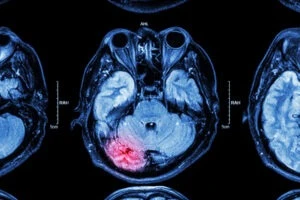
Were you or a loved one diagnosed with a traumatic brain injury (TBI)? A TBI diagnosis can change your life. How doctors diagnose traumatic brain injuries can help you understand the degree of brain injury you or a loved one is living with. It can also help you understand and manage your prognosis.
Because diagnosis will include determining the TBI’s stage — mild, moderate, or severe — it will likely involve various tests and exams. These can include imaging tests, measurement of brain function on the Glasgow Coma Scale (GCS), speech and communication tests, and neurological and cognitive assessments. Doctors may also order a battery of blood tests and measurements of intracranial pressure.
TBI Diagnosis And Treatment Start With Emergency Care
Traumatic brain injuries are often the result of serious Columbus car accidents, sports injuries, violent physical assaults, gunshot wounds, and explosions. These causes mean the injured party requires immediate medical care and attention.
According to the Mayo Clinic, emergency treatment may consist of:
- Breathing support
- Blood pressure support
- Head and neck support
- Reducing brain inflammation
It also involves maintaining an appropriate oxygen supply to the patient’s brain. Emergency care is only the beginning of TBI treatment. It typically means stabilizing the patient and preparing them for further testing and a definitive diagnosis.
Imaging Exams
According to the Cleveland Clinic, imaging exams allow your doctor to see detailed images of your injured brain and any resulting damage. They can include:
- CT scans that depict images of your brain from all angles, including bleeding and bruising
- MRIs use magnetic radio waves to create detailed images of your brain
Your doctor may order repeat MRIs to check for progress and recovery.
The Glasgow Coma Scale (GCS)
According to the Centers for Disease Control and Prevention (CDC), GCS measurements tell your doctor details about the way your brain functions in three important areas:
- Speech and communication
- Voluntary and involuntary eye movement
- Mobility and range of motion
GSC responses are assigned “points,” with higher total scores indicating lesser degrees of injury. Your doctor may use the same scale to measure progress throughout your recovery.
Blood Tests
Your doctor may request a range of blood tests along with a complete physical exam. In 2018, the Food and Drug Administration (FDA) approved a blood test that detects proteins in the brain that point to a concussion (mild TBI).
This test can aid in diagnosing a TBI that might not immediately appear on imaging exams. Identifying these proteins can also aid in creating a beneficial treatment plan that leads to maximum medical recovery.
Neurological Evaluation
Your doctor will conduct a neurological evaluation to determine the degree of impairment your brain injury may have caused. Tests will measure:
- Speech patterns
- Language
- Communication skills
- Self-control
- Swallowing ability
- Breathing ability
- Cognitive ability
The neuropsychological assessment will measure your ability to control your body, fine and gross motor skills, and ability to interact socially.
These tests’ combined results will define the TBI level you incurred and its impact on your life. It will also help your doctor develop an optimal treatment plan.
Diagnosing The Level Of A TBI
Doctors will measure your TBI level based on the results of the tests they order. TBI levels are usually identified as one of the following:
- Mild TBI: Also called a concussion, a mild TBI typically results in a short-term loss of consciousness, temporary memory loss, and pain that can be treated with medication. It can also be marked by difficulty concentrating and chronic headaches.
- Moderate or Severe TBI: Symptoms may include cognitive delays, weakened limb use, emotional disturbances, behavior issues, difficulty learning, lack of balance and coordination, hearing and vision disturbances, and anxiety and depression.
Moderate and severe TBIs can also lead to co-occurring illnesses. The level of TBI you are diagnosed with will determine your treatment plan. It will also play a role in your anticipated recovery and prognosis.
Living With A Traumatic Brain Injury
Depending on its level, a TBI can change your life by changing your physical, mental, and emotional abilities. Living and coping with these changes may require:
- Individual and group counseling
- Physical, occupational, and speech therapies
- Establishing and following a routine
- Emotional and familial support
Your healthcare team will continually monitor your condition and adjust your treatment plan to optimize your recovery.
Get A Free Review Of Your TBI Case
An injury as serious as a TBI can be life-changing and life-threatening. If you or a loved one was diagnosed with a TBI caused by a negligence-based accident, our team of Columbus personal injury lawyers can help you build a case for compensation. A TBI attorney from our team will delve into how your traumatic brain injury was diagnosed and its medical and financial impact on your future.
Learn more about your financial recovery options by contacting one of our case review team members at the Fitch Law Firm LLC today.
